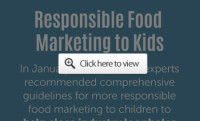By Heather Callaghan By Heather Callaghan Previously, we expanded on 5 major ways to boldly face the onslaught of sugary holiday treats and desserts. No one is arguing that a person can’t enjoy the occasional… …read more Read more here: Natural Blaze
By Michael By Gaye Levy With 100% certainty, I know that I am perceived as one of those “crazy prepper nut jobs”. I laugh at myself as I say this because like the story of the ant and the grasshopper, it is… …read more Read more here: Natural Blaze
The amazing power of amino acids–pure medicine if given in the correct form and right dosages. But are you familiar with how amino acids are processed and how far do you go to ensure product quality? …read more Read more here: Prevent Disease
It prevents cardiovascular disease, cancer and hypertension, but researchers have now found that fish oil also transforms fat-storage cells into fat-burning cells, which may reduce weight gain in middle age. …read more Read more here: Prevent Disease
By Alijuina Herw Women mostly face uterine fibroids and cysts, particularly during childbearing years. An ovarian cyst is a fluid-filled pocket within or on the surface of an ovary, while a fibroid is a non-cancerous growth that develops in or around the womb. Fibroids, which are also known as myomas, are benign non cancerous tumors that grow on the uterine wall. Ovarian cysts, including polycystic ovary syndrome, are fluid-filled cysts that appear in the ovaries and are fairly common. The following recipe has been proven to be effective in the treatment of both ovarian cysts and uterine fibroids as well [More]
By Ariana Source: This DIY Soil Enhancer Will Change the Way You Garden Forever For more content like this visit REALfarmacy.com. by ARIANA MARISOL Biochar is a two-thousand year old practice that converts agricultural waste into a fine-grained, highly porous charcoal that helps soil retain nutrients and water. This process enhances soil, holds carbon, boosts food security, and can increase soil biodiversity. Biochar can be found in soils throughout the world as a result of vegetation [&hellip Source: This DIY Soil Enhancer Will Change the Way You Garden Forever Learn more at REALfarmacy.com – Healthy …read more Read more here: [More]
By Ariana Source: Lose Weight and Improve Health With This Superfood For more content like this visit REALfarmacy.com. by ARIANA MARISOL This not very well-known superfood has the ability to regulate blood sugar levels, lower bad cholesterol, help with weight loss, lower blood pressure, improve the health of the liver, and prevent certain types of cancer! Yacon is a large perennial plant that is mainly grown and cultivated for its tuberous roots. The scientific [&hellip Source: Lose Weight and Improve Health With This Superfood Learn more at REALfarmacy.com – Healthy News and Information. …read more Read more here: realfarmacy.com
By Cooper Hypertension is a condition present when blood flows through the blood vessels with a force greater than normal. Hypertension is another term used to describe high blood pressure. Hypertension affects approximately 75 million adults in the United States. Controlling hypertension with a blood pressure reading of or less than 140/90 mm Hg has been identified as key to lowering the risk for cardiovascular disease. 10 Worst Foods for Hypertension Chinese Food The sauces used in Chinese dishes like soy sauce, bean paste and teriyaki sauce are loaded with sodium. For instance, soy sauce contains as much as 824mg [More]
By Ariana Source: Know These Important Rules Before You Forage For more content like this visit REALfarmacy.com. by ARIANA MARISOL Foraging is a fun way to get into nature and appreciate all that it can provide for us. It is important to remember the ethics of foraging so that we can all work together to keep the natural world healthy, and full of abundance. Here are some basic codes of ethics [&hellip Source: Know These Important Rules Before You Forage Learn more at REALfarmacy.com – Healthy News and Information. …read more Read more here: realfarmacy.com
By Michael By Amanda Froelich Are you aware that in the United States, nearly 40% of the food produced is tossed into the trash? As it makes its way to the landfill, 795 million people in the world wonder where… …read more Read more here: Natural Blaze
If you are craving something rich and decadent this Raw Buster Bar Dessert is perfect for you this holiday season! This is an indulgent, creamy dessert with so many healthy ingredients, you’ll wonder how it tastes so good. …read more Read more here: Prevent Disease
By Lynn Griffith In 2015 it was estimated that 231,840 new cases of invasive breast cancer would be diagnosed in the United States. (1) Most households personally know at least one person who has battled breast cancer. There are numerous foods and compounds that have been studied for their ability to prevent or treat diseases. The pharmaceutical industry continues to push patented medications that have numerous side effects but are sure to make a profit. Meanwhile, research continues to grow that the plants and foods in nature are effective in preventing and treating diabetes, arthritis and even cancer. (2) Chinese [More]
By Dr. Mercola Here’s a fact: breakfast is NOT the most important meal of the day. Growing research has found that skipping breakfast, as part of an intermittent fasting program, can actually have far-reaching benefits on your health – from improving your insulin and leptin sensitivity to helping your body burn fat for fuel effectively. If you opt for breakfast, ideally you should skip dinner and eat two meals per day instead of three. While I’m still convinced that intermittent fasting is an important strategy for effective weight loss and disease prevention, it likely doesn’t matter which meal you skip [More]
By Beverly Entin Made by cold pressing the pomegranate seeds, pomegranate seed oil is packed with many nutrients and is used both internally and externally for its medicinal properties. It’s extremely popular been used for skin care, as an amazing ingredient in many skin care products, pomegranate seed oil is beneficial for skin and health in many ways: 1. Prevents skin aging Pomegranate seed oil has strong anti-inflammatory properties thanks to the punicic acid and omega 5 fatty acid. This makes it fight against free radicals thus preventing skin aging. 2. Heals dry skin Pomegranate seed oil is perfect for [More]
By Ariana Source: Be the First to Plant These Five Vegetables in Your Garden For more content like this visit REALfarmacy.com. by ARIANA MARISOL Looking to add new crops to your garden? Be the first to add these easy-to-grow vegetables, and bring some color and variety into your life. Tromboncino: Summer and Winter All in One This squash can be harvested as a summer squash or you can allow it to grow to full size and [&hellip Source: Be the First to Plant These Five Vegetables in Your Garden Learn more at REALfarmacy.com – Healthy News …read more Read more [More]
By Admin – Orissa by Brian ShilhavyHealth Impact News Health Impact News has been a leader in the alternative media publishing research and testimonials supporting the positive use of coconut oil with people suffering from Alzheimer’s Disease. These remarkable stories of families seeing dramatic improvement from Alzheimer’s and dementia are documented at CoconutOil.com. In many cases, adding several spoonfuls of coconut oil a day to the diet of one suffering from Alzheimer’s and dementia has resulted in memories returning, the ability to once again converse with friends and loved ones, etc. (<a target=_blank href="http://coconutoil.com/coconut-oil-research-alzheimers/" …read more Read more here: Health [More]
By Admin by Health Impact News/MedicalKidnap.com Staff Julius Corley Dies in Pain Despite His Families Efforts to Save His Life Laredo Regular relates the tragic ending of this World War II Veterans’ life: My Grandpa, Julius Corley, officially passed away on Thanksgiving afternoon after being on life support in the prior weeks. He never got to come home. Julius’ story began long before Health Impact News was contacted about his plight in the fall of 2015. Julius was a World War II Veteran being held at New York’s Montefiore Hospital allegedly against his will and those of his legal and [More]
By By J. D. Heyes (NaturalNews) For those who are not familiar with the taxpayer-funded network Voice of America, it is essentially a government propaganda instrument whose mission, as The New York Times has noted in its politically correct manner, “is charged with presenting America’s viewpoint to… …read more Read more here: Natural News
By Ariana Source: Cure Bunions With These Natural Remedies and Avoid Surgery For more content like this visit REALfarmacy.com. by ARIANA MARISOL Bunions are a real “nightmare” for those who have them and getting rid of them can be even worse. Here is one recipe and four natural cures for bunions so that you can avoid surgery and begin to better about your feet. Bunions are large bony bumps caused by abnormal growth [&hellip Source: Cure Bunions With These Natural Remedies and Avoid Surgery Learn more at REALfarmacy.com – Healthy News and Information. …read more Read more here: realfarmacy.com
By Ariana Source: Want a Healthy Coffee Alternative? Look No Further For more content like this visit REALfarmacy.com. by ARIANA MARISOL Are you searching for a healthy coffee alternative? This warm, comforting beverage offers a boost of natural, focused energy, with none of the negative effects of coffee or other coffee alternatives. One cup of guyausa has the same caffeine levels as a cup of coffee, and twice that of a cup of tea, [&hellip Source: Want a Healthy Coffee Alternative? Look No Further Learn more at REALfarmacy.com – Healthy News and Information. …read more Read more here: realfarmacy.com
By Michael Greger M.D. …read more Read more here: nutritionfacts.org
By Julie Fidler In the massive spending bill unveiled Wednesday morning on Capitol Hill, 2 small paragraphs contain language that may force the U.S. Food and Drug Administration (FDA) to finalize guidelines for the labeling of the recently-approved genetically modified (GM) salmon, or “Frankenfish.” In the $1.1 trillion bill to fund the government through September 2016, the agency is instructed to ban the sale of GM salmon until it can complete labeling guidelines and “a program to disclose to consumers” whether a fish has been genetically altered. The FDA is expected to spend a minimum of $150,000 of its funding [More]
By Dr. Mercola By Dr. Mercola According to the latest statistics,1 about 75 percent of American men and 67 percent of women are either overweight or obese. This means less than one-third of US adults are at a healthy weight. The statistics for children are equally disturbing. Over 17 percent of American children between the ages of 2 and 19 fall into the obese category, which can set them up for a lifetime of very serious health problems. “The Weight of the Nation: Children in Crisis” is the third episode of a four-part HBO documentary series2 about obesity …read more [More]
By Dr. Mercola By Dr. Mercola Diacetyl is an artificial flavor that’s most well known for adding a buttery taste to microwave popcorn. Its been linked to respiratory damage, including inflammation and permanent scarring of the airways, dubbed “popcorn lung,” in workers at a microwave popcorn plant.1 If you smoke e-cigarettes, there’s a good chance you’re doing so in order to reduce your health risks compared to smoking tobacco cigarettes. But, you should know that even e-cigarettes come with risks, including exposure to the “popcorn lung” chemical diacetyl and other chemicals with every puff. ‘Popcorn Lung’ Flavoring Chemical Found Widely [More]
By Dr. Mercola By Dr. Mercola Millions of people suffer from sore throats and coughs each year. In the U.S., sore throat is often one of the first signs that you’re coming down with a cold, especially if a runny nose and cough soon follow. In most cases you don’t need to see your physician for a sore throat, and fewer than 1 in 10 people actually do. Even so, sore throat is the second most common acute infection seen by family practitioners.1 In 85 percent to 95 percent of cases, sore throats in adults are caused by viruses. …read [More]
By By Natural News Editors (NaturalNews) People all over the US are feeling a sudden pinch on their food budgets. This is a result of a convergence of events that have spiked prices for everyday items like meat, eggs, dairy but also natural events like drought, floods, snow. (Story by Ray Gano, republished… …read more Read more here: Natural News
By Michael By Amanda Froelich The last place you might expect to see an urban garden is in the heights of a city skyscraper, but that’s exactly what you’ll be surprised with if you visit Pasona Inc. in Japan…. …read more Read more here: Natural Blaze



























